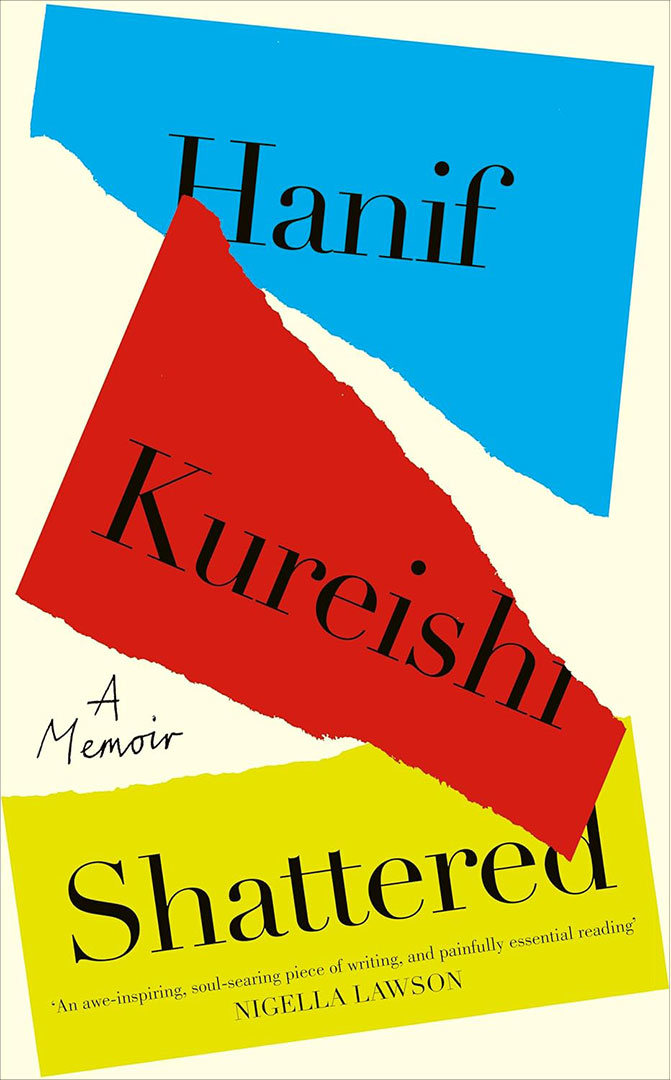Books in the Media: Hanif Kureishi triumphs across the nationals
Hanif Kureishi’s Shattered (Hamish Hamilton), an “intense” memoir reflecting on the author’s life following a fall in 2022 that left him almost completely paralysed, was commended across the nationals.
The Telegraph’s James Walton wrote that Shattered is Kureishi’s way to “write his way back into selfhood”, concluding that: “There’s always a suspicion that memoirs of trauma are opportunistic, even slightly shameless, attempts to titillate; but this book is much too heartfelt for that. Kureishi is almost literally writing for his life.” The Spectator’s Lynn Barber noted: “I’ve never felt tempted to use the word ‘inspirational’ about a book, and promise I never will again, but it’s the only word I can think of to describe Shattered.”
Boyd Tonkin at the Financial Times wrote that “literary pathfinder” Kureishi “has found his unique way to depict chronic illness and impairment, so ignored by polite culture, as ‘an inevitable and essential part’ of human experience”. Sathnam Sanghera, writing for the Times, called Shattered a “searing” memoir. In his interview with Sanghera, Kureishi said: “I think traumas can stimulate people to do new things because they have to resolve the trauma, or explore it, or put it to bed in some shape or form. The trauma of racism caused me to be a writer, you could say. And the trauma of this accident has caused me to write what I am now.”
Unfortunately, She Was a Nymphomaniac: A New History of Rome’s Imperial Women (William Collins), by journalist and activist Joan Smith, is an “eloquent account of how historians have systematically distorted the experience of women in the Julio-Claudian dynasty”, noted Edith Hall, writing for the Telegraph. Hall commended Smith’s skill as a “polished and exhilarating writer of mordant wit” that has created a “powerful and important book… [which] makes the precious legacy of the western classics serve a profound—and provocative—purpose". The Times’ Patrick Kidd noted that Smith “puts up a diligent attempt to correct the record, and no one can deny after reading it that the life of a woman in ancient Rome, even a very wealthy and well-connected one, was based on control by men and was often very dangerous”.
Jonathan Coe’s latest novel The Proof of My Innocence (Viking) takes former prime minister Liz Truss’ 49 days in office as its “starting point”, wrote Johanna Thomas-Corr at the Times. Thomas-Corr called the novel “a tour de force in which [Coe] hops between pastiches of cosy crime, dark academia and autofiction”. Coe told Thomas-Corr that he “felt I had to stick within the conventions of cosy crime, but apart from that I felt I could do anything, I could make it as silly as I like”. Finn McRedmond at the Financial Times also reviewed the novel, calling it “well-paced” adding “and he is—rare for a novelist—funny”.
Jeff VanderMeer’s Absolution (Fourth Estate) marks a return to the author’s Southern Reach trilogy. Although Abigail Nussbaum at the Guardian called it an “unlooked-for follow-up" to the series, she also wrote that VanderMeer “produces a near-seamless shading between the weirdness and danger of Area X”, a liminal space between the natural world and the unknown. Overall, the new novel “reinforce[s] the original series’ contention—that the boundary between the uncanny and the familiar is more porous than we realise—with the observation that sometimes, at the very heart of rationality, we may find madness.”


















